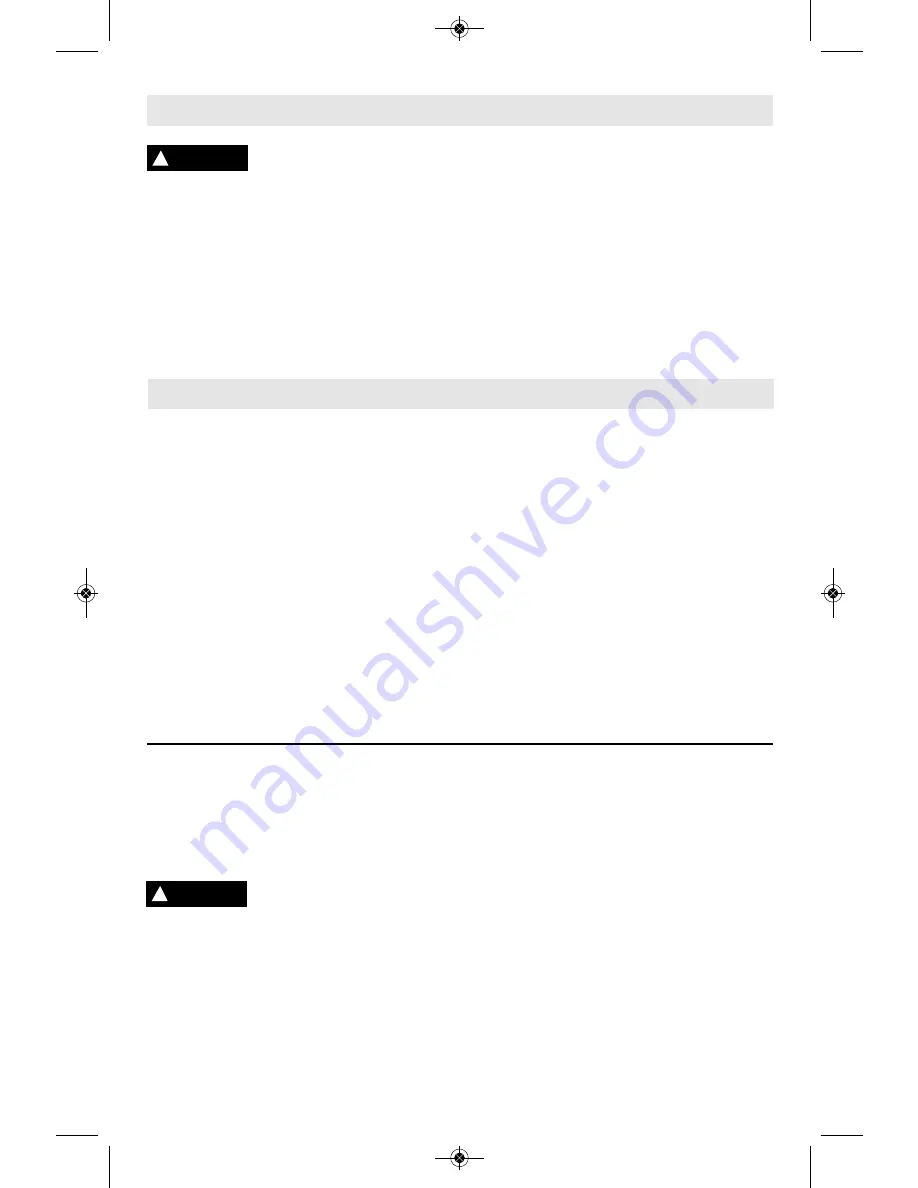
-7-
Assembly
Always disconnect the plug
from the power source before
attaching or removing abrasive sheets.
INSTALLING ACCESSORIES
Your random orbit sander uses hook-and-loop
backed accessories, which firmly grip the pad
when applied with moderate pressure. To
change the accessory, merely peel off the old
accessory, remove dust from the pad if
necessary, and press the new accessory in
place. Be sure to align the sanding disc holes
with the holes in the backing pad to allow the
dust extraction system to function.
After considerable service the pad surface will
become worn, and the pad must be replaced
when it no longer offers a firm grip. If you are
experiencing premature wearout of the pad
facing, decrease the amount of pressure you
are applying during operation of the tool.
ROCKER “ON/OFF” SWITCH
TO TURN THE TOOL "ON" depress the
dust-protected switch to the number “I”
position.
TO TURN THE TOOL "OFF": depress switch
to the number “0” position.
With the workpiece firmly secured, depress
switch while applying the pad to the work
surface. DO NOT apply excessive pressure
as this will slow the pad action, and DO NOT
start the tool and bring it up to speed before
applying to the work; swirl marks will result in
either case. In general, higher speeds and
moderate pressure will give the best results. If
faster removal is desired, DO NOT INCREASE
PRESSURE ON THE TOOL; use a coarser
grade of abrasive. Move the sander in long
sweeping strokes, parallel to the grain using
some lateral motion to overlap the strokes by
as much as 75%. The random orbit action
allows cross-grain sanding, but be careful not
to tilt the sander near edges, or undesirable
rounding may result.
PRESSURE CONTROL
Your tool is equipped with pressure control
indicator lights. The indicator lights will let you
know if you are applying the proper amount of
pressure during operation. If the green
indicator lights are illuminated you are applying
the correct amount of pressure. If the red
indicator light illuminates you are applying too
much pressure and you need to apply less
pressure (Fig. 1).
Operating Instructions
MICROFILTER DUST CANISTER
The integral dust extraction system collects
sanding dust in canister supplied with your
sander. For maximum efficiency, the dust
canister should be emptied frequently during
operation.
Your tool is equipped with a
dust canister, empty it
frequently, after completion of sanding and
before storing the sander.
Be extremely
careful of dust disposal, materials in fine
particle form may be explosive. Do not throw
sanding dust on an open fire. Combustion
from mixture of varnishes, lacquers,
polyurethane, oil or water with dust particles
can occur if there is a static discharge, spark
introduced in the box, or excessive heat.
REMOVING AND INSTALLING
DUST CANISTER
To remove dust canister, rotate canister so that
slot is in line with pin and simply pull away from
the dust port (Fig. 1).
To install dust canister, align dust port with
hole in canister, push canister onto dust port
and rotate until it locks into place.
CLEANING AND EMPTYING
THE DUST CANISTER
Knock excess dust out of the microfilter, or
remove dust with your fingers or a soft brush.
You may notice that all the dust may not
come out of the canister. This will not affect
sanding performance but will reduce dust
collection efficiency.
!
WARNING
!
WARNING
BM 2610958575 02-09:BM 2610958575 02-09 2/4/09 10:54 AM Page 7








































